Find Help
More Items From Ergsy search
-
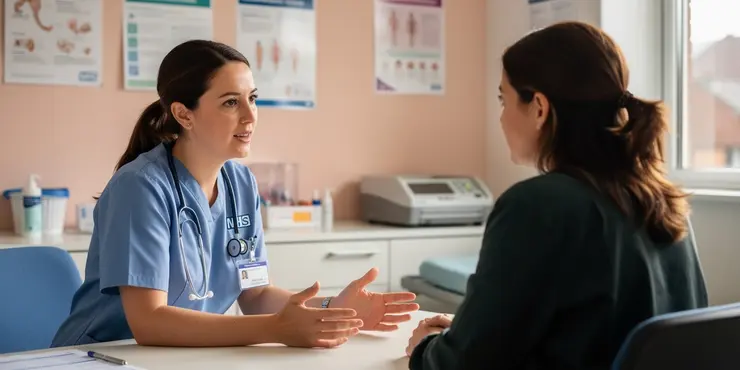
Sexually transmitted infections STIs
Relevance: 100%
-
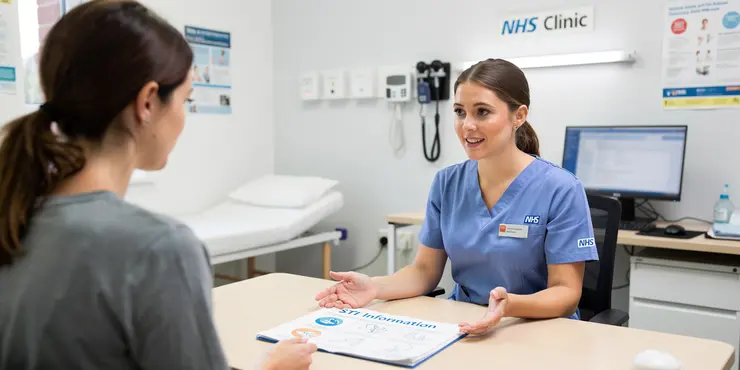
NHS STI (Sexually Transmitted Infections) Information Video
Relevance: 82%
-
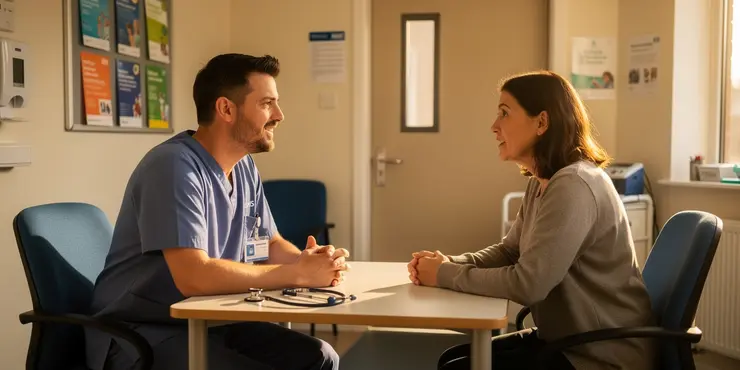
Can men in the UK transmit Zika virus if infected?
Relevance: 69%
-
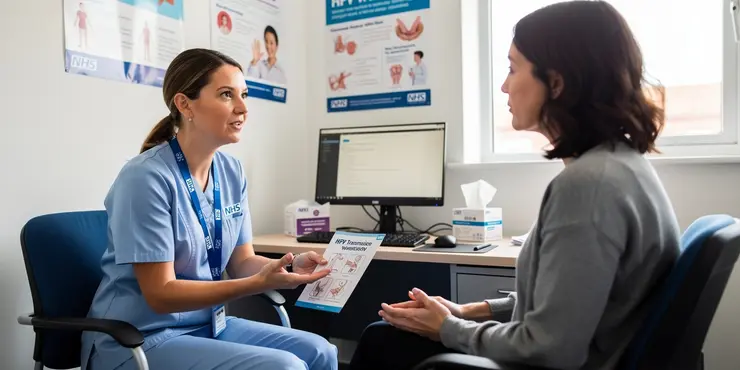
How is HPV transmitted?
Relevance: 60%
-
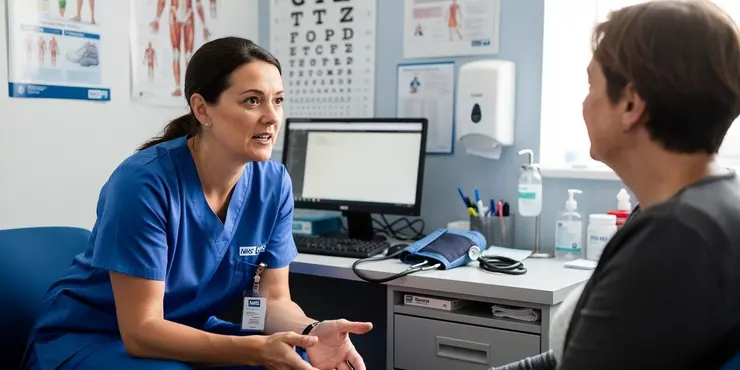
How is the Zika virus transmitted?
Relevance: 57%
-

How is gonorrhoea transmitted?
Relevance: 56%
-

Understanding Your Sexual Health - Genital Warts
Relevance: 55%
-
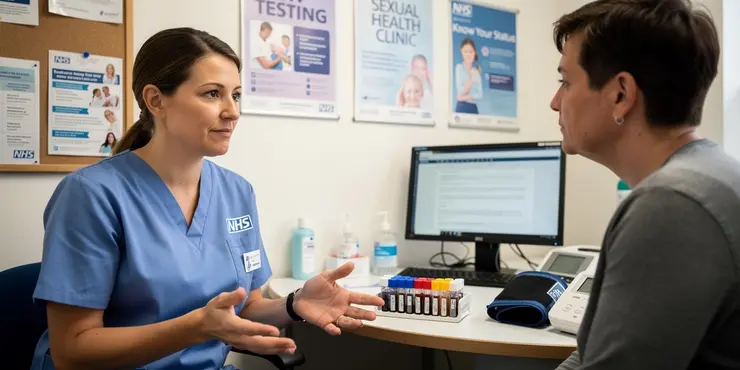
How is HIV transmitted?
Relevance: 55%
-
Can bacterial infections be transmitted through blood transfusion?
Relevance: 53%
-

Understanding Your Sexual Health - Gonorrhoea
Relevance: 52%
-

Understanding Your Sexual Health - Herpes
Relevance: 51%
-
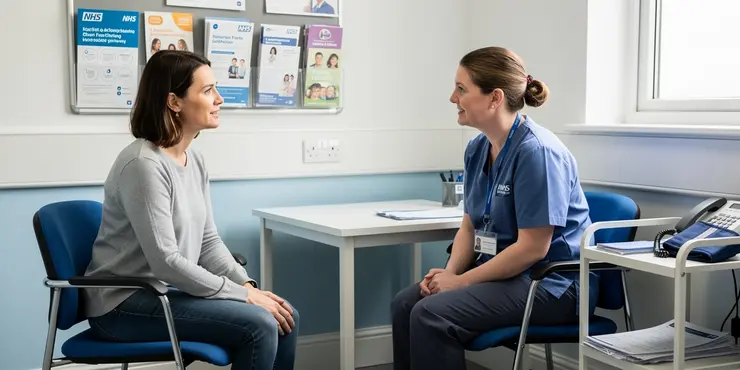
Understanding Your Sexual Health - Pelvic Inflammatory Disease
Relevance: 49%
-
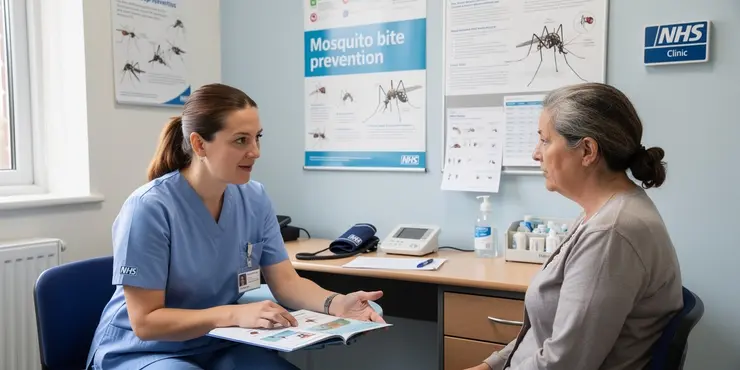
How is Chikungunya virus transmitted?
Relevance: 48%
-
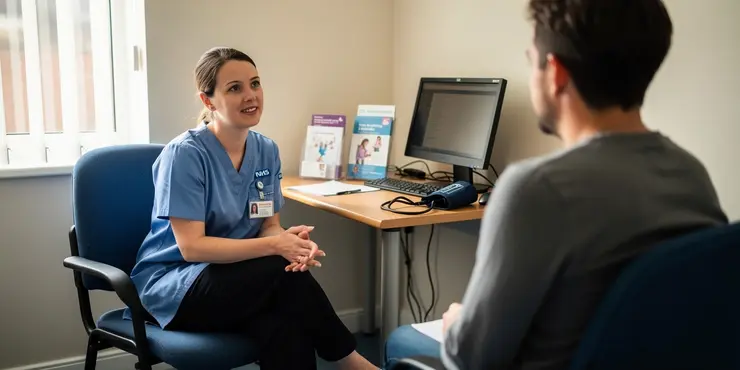
The Different Roles in Sexual Health and Family Planning UK
Relevance: 48%
-

Let's Talk Sexual Health - Home Self Testing Kits
Relevance: 47%
-

Let's Talk Sexual Health - Home Self Testing Kits
Relevance: 47%
-
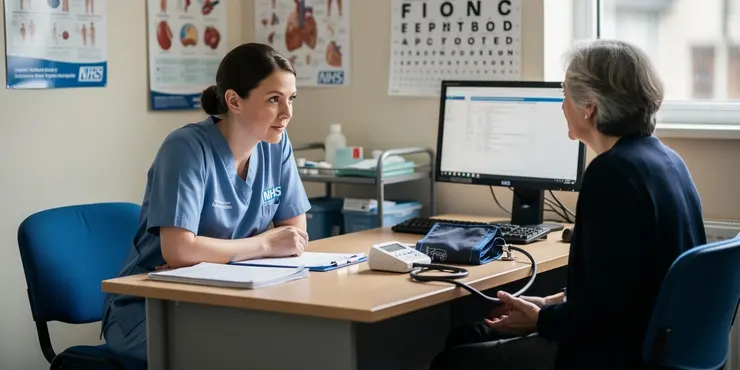
Can syphilis be transmitted via blood transfusion?
Relevance: 46%
-
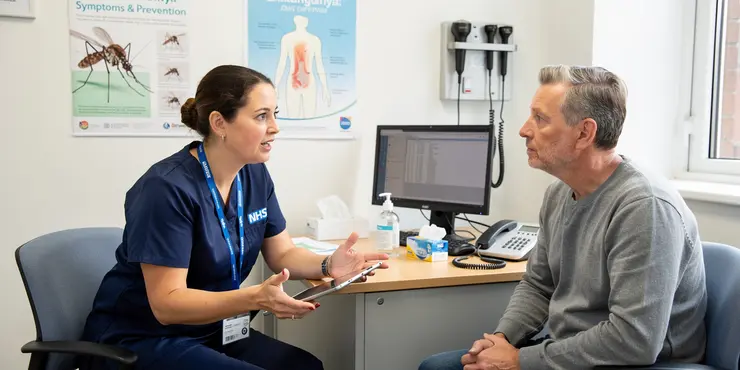
Can Chikungunya be transmitted from person to person?
Relevance: 45%
-
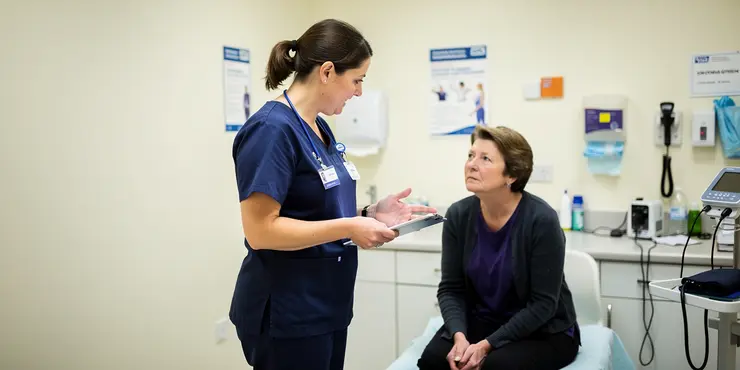
How is the Marburg virus transmitted?
Relevance: 44%
-
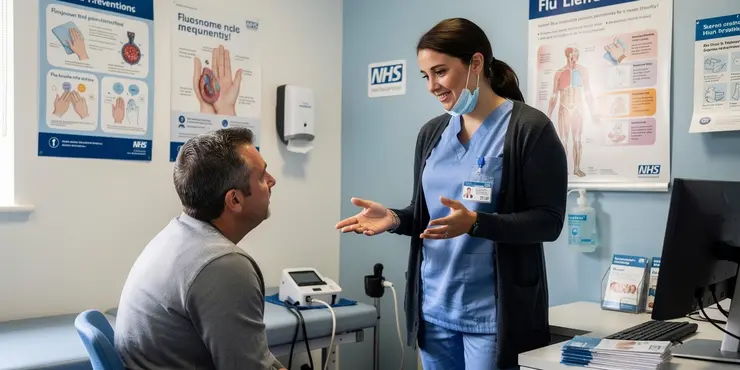
How is H3N2 transmitted?
Relevance: 44%
-
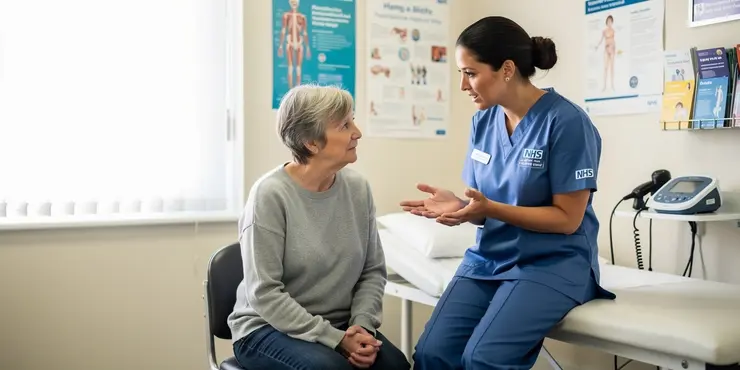
Can gonorrhoea infect areas other than the genital organs?
Relevance: 44%
-
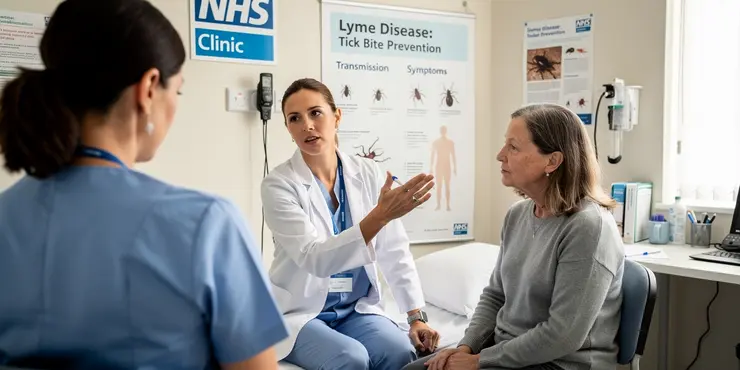
How is Lyme disease transmitted?
Relevance: 44%
-
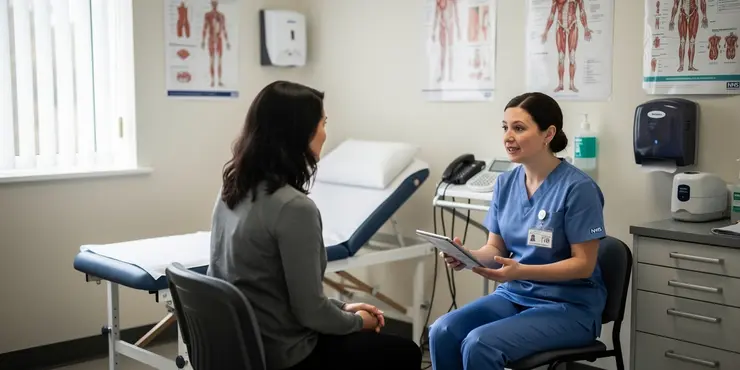
How is Rubella transmitted?
Relevance: 43%
-
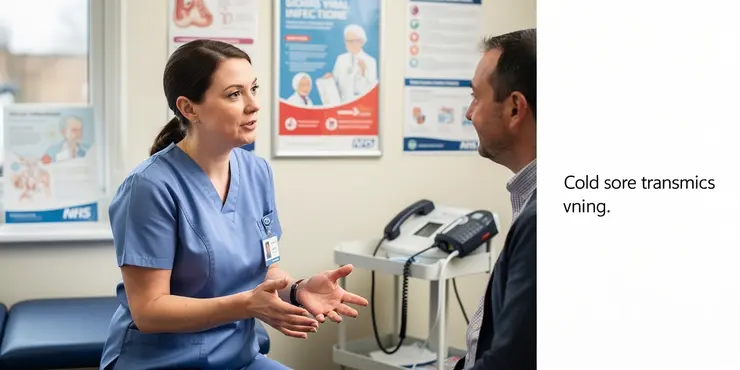
How are cold sores transmitted?
Relevance: 43%
-
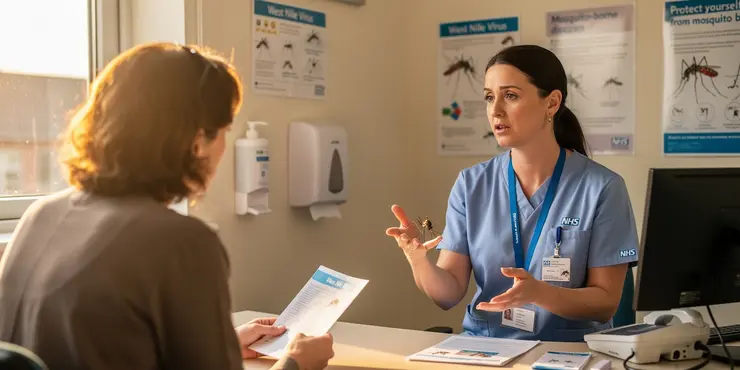
How is West Nile Virus transmitted?
Relevance: 42%
-
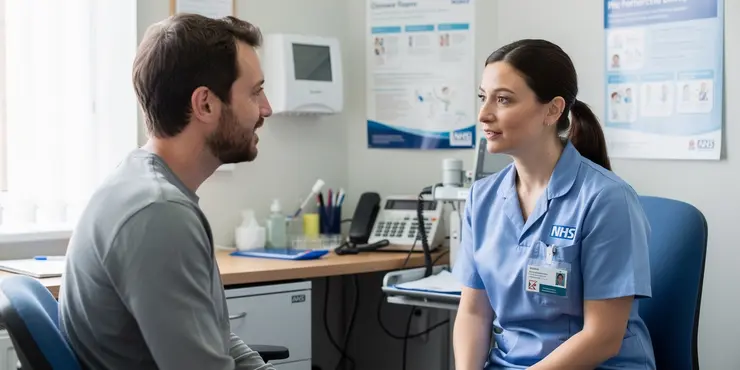
Are UK mosquitoes capable of transmitting Zika virus?
Relevance: 42%
-
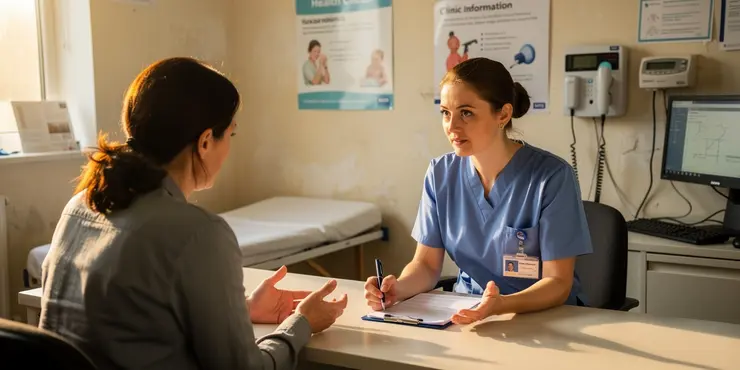
How is the bubonic plague transmitted?
Relevance: 41%
-

How is Nipah Virus transmitted?
Relevance: 41%
-

Sexual Health - HIV Testing
Relevance: 41%
-

How is measles transmitted?
Relevance: 41%
-

What is Chikungunya virus infection?
Relevance: 40%
-

Are E. coli infections contagious?
Relevance: 40%
-
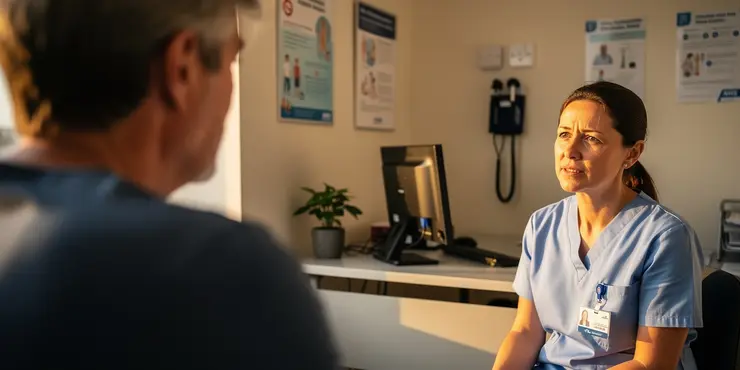
Can HIV be transmitted through insect bites?
Relevance: 40%
-
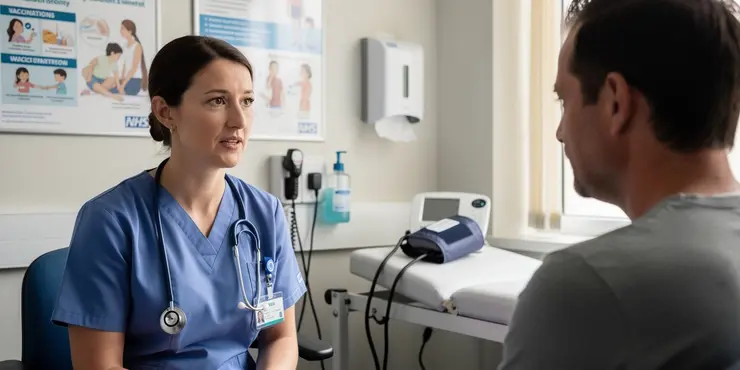
How is measles transmitted?
Relevance: 39%
-
Can Dengue fever be transmitted through blood transfusions?
Relevance: 38%
-
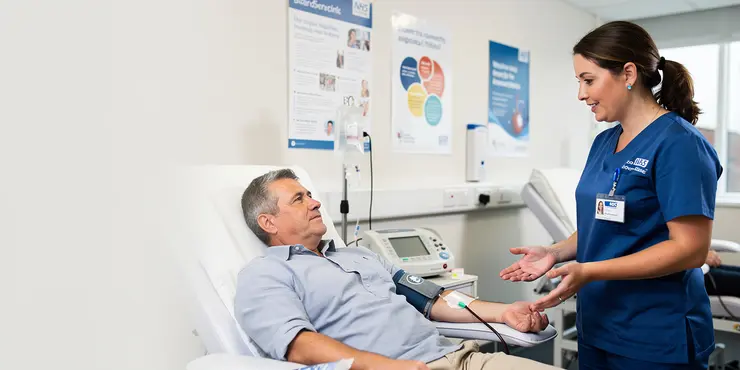
Are there any parasites that can be transmitted through blood transfusions?
Relevance: 38%
-
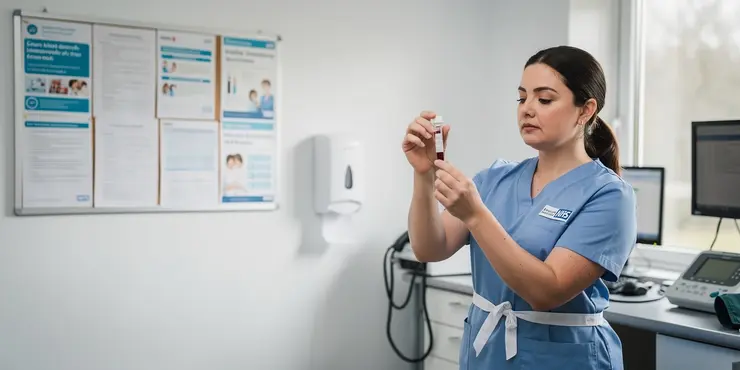
What is the most common disease transmitted by blood transfusion?
Relevance: 38%
-
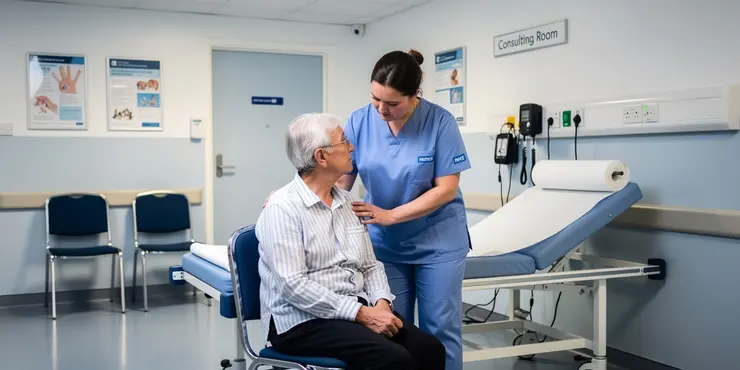
Can Nipah Virus be transmitted from person to person?
Relevance: 37%
-
Three-year limit for child sexual abuse claims to be removed
Relevance: 37%
-
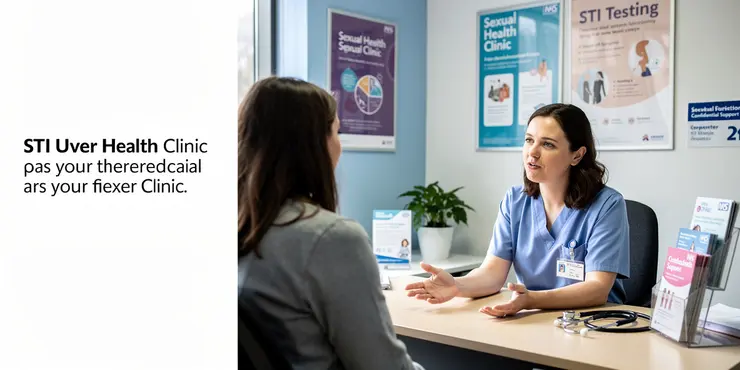
Can gonorrhoea be prevented?
Relevance: 36%
NHS Sexually Transmitted Infections (STIs) Information Video
Understanding STIs
Sexually Transmitted Infections (STIs) are infections that are primarily spread through sexual contact. They can be caused by bacteria, viruses, or parasites. Common STIs include chlamydia, gonorrhoea, syphilis, and genital herpes. The NHS provides comprehensive information and resources to educate the public about the prevention, diagnosis, and treatment of STIs.
The Importance of Awareness
Awareness and education are crucial in preventing and managing STIs. The NHS information video offers valuable insights into recognising symptoms, understanding transmission, and seeking timely medical advice. Increased awareness can lead to early diagnosis, effective treatment, and reduced transmission rates within the community.
Testing and Treatment
The NHS provides free and confidential testing for STIs. Early detection is key to preventing long-term health complications and transmission to others. Treatments are available for most STIs, and in many cases, infections can be cured with prescribed medication. The information video highlights the importance of regular screening, especially for sexually active individuals.
Preventive Measures
Practicing safe sex is the most effective way to prevent STIs. The NHS recommends the use of condoms and regular testing as essential preventive measures. The video also emphasizes the importance of communication with sexual partners and reducing the number of sexual partners to lower the risk of contracting an STI.
Resources and Support
The NHS provides a wide range of resources and support for individuals concerned about STIs. This includes access to sexual health clinics, online information, helplines, and counseling services. The information video serves as a guide to these resources, ensuring individuals know where to seek support and advice.
Conclusion
Regular screening, education, and practicing safe sex are fundamental in controlling the spread of STIs. The NHS STI information video is an invaluable resource that educates and empowers individuals to take control of their sexual health. For detailed information, visit the NHS website or contact your local sexual health clinic.
NHS Information Video on STIs
What Are STIs?
STIs are bugs you can catch from having sex. They are called Sexually Transmitted Infections. Some bugs are germs, tiny living things, or tiny bugs. Some names of STIs are chlamydia, gonorrhoea, syphilis, and herpes. The NHS can help you learn more about STIs, how to stop them, check for them, and help if you have them.
Why Knowing About STIs is Important
Knowing about STIs helps people stay healthy. The NHS video explains what signs to look for, how people get STIs, and when to ask a doctor for help. If more people know about STIs, then people can get help sooner, get better faster, and pass STIs less.
Getting Tested and Treated
You can get a free test for STIs from the NHS, and it is private. Finding out early is important, so you do not get very sick or give it to someone else. Many STIs can be treated with medicine from a doctor. The video tells why regular testing is good, especially if you have sex often.
How to Stay Safe
Using condoms is a good way to not get STIs. The NHS says condoms and regular testing help keep you safe. The video also says talking to your partner about STIs and having fewer partners can help you stay safe.
Where to Get Help
The NHS gives lots of help if you are worried about STIs. You can go to special health clinics, look online, call a helpline, or talk to a counselor. The video shows where to find this help, so you know what to do or who to talk to.
In the End
Getting tested often, learning about STIs, and being safe is important to not spread STIs. The NHS video is a great way to learn and take care of your health. For more details, go to the NHS website or ask your local clinic.
Frequently Asked Questions
What are STIs?
STIs, or sexually transmitted infections, are infections passed from one person to another through sexual contact. They can be caused by bacteria, viruses, or parasites.
How can STIs be transmitted?
STIs can be transmitted through vaginal, anal, or oral sex, and sometimes through non-sexual means such as sharing needles or from mother to baby during childbirth.
What are the common symptoms of STIs?
Common symptoms include unusual discharge from the genitals, sores or warts, pain during urination, and itching or irritation. However, some STIs may have no symptoms at all.
How can I reduce the risk of getting an STI?
Using condoms correctly every time you have sex, having regular STI screenings, limiting the number of sexual partners, and getting vaccinated for preventable infections such as HPV can reduce your risk.
Where can I get tested for STIs?
You can get tested at your GP surgery, local sexual health clinics, or genitourinary medicine (GUM) clinics. Some areas also offer home testing kits.
Is there a charge for STI testing on the NHS?
No, STI testing is free at NHS clinics, GP surgeries, and through NHS-sponsored home testing kits.
How often should I get tested for STIs?
It’s recommended to get tested at least once a year, or more often if you have multiple sexual partners, start a new relationship, or have symptoms of an STI.
Can STIs be treated?
Many STIs can be treated and cured with medication, such as antibiotics for bacterial infections. However, viral STIs like herpes and HIV can be managed but not cured.
What should I do if I test positive for an STI?
Follow your healthcare provider's advice for treatment and notify any recent sexual partners so they can also get tested and treated if necessary.
Can I get an STI from oral sex?
Yes, STIs such as gonorrhea, chlamydia, syphilis, and herpes can be transmitted through oral sex.
Are there STIs that don't show symptoms?
Yes, some STIs like chlamydia and gonorrhea can be asymptomatic, meaning they show no symptoms but can still cause health issues and spread to others.
How can I tell if my partner has an STI?
Many STIs do not show visible symptoms, so the only way to know for sure is through regular testing. Encourage open communication about sexual health with your partner.
Can I use a home test kit for all STIs?
Home test kits are available for some STIs, such as chlamydia and gonorrhea. However, for comprehensive testing, it's best to visit a healthcare provider.
What is the difference between an STI and an STD?
STI stands for sexually transmitted infection, and STD stands for sexually transmitted disease. STI is the broader term as not all infections progress to disease.
Are there vaccines for STIs?
Yes, vaccines are available for some STIs, like the human papillomavirus (HPV) and hepatitis B. It's important to get vaccinated if you are eligible.
What are STIs?
STIs are infections that you can get from another person during sex. They are also called sexually transmitted infections. Some common STIs are chlamydia, gonorrhea, and HIV.
It is important to check with a doctor if you think you might have an STI. Doctors can help you feel better and stop it from spreading to others.
To stay safe, use a condom when you have sex. This can help stop STIs.
If it is hard to read, ask someone you trust to help you understand. Using pictures can also help make things clearer.
STIs are infections you can get from having sex. They can be caused by tiny germs like bacteria, viruses, or parasites.
How do people get STIs?
STIs can spread between people in different ways. Here is how:
- Having sex without a condom.
- Touching an infected area.
- Being in close contact with someone who has an STI.
- Sharing needles.
Using condoms and getting regular check-ups can help you stay safe.
STIs are infections you can get from having sex. You can get them from vaginal, anal, or oral sex. Sometimes, you can also get them in other ways. For example, by sharing needles or from a mother to her baby during birth.
What are signs of having an STI?
Here are common signs if you have an STI:
- It hurts when you pee.
- You have bumps or sores on private parts.
- You have unusual discharge.
- It itches a lot in private areas.
- You feel pain in the belly.
If you feel these signs, talk to a doctor. They can help you.
Use tools to help, like:
- Ask someone to read with you.
- Use a picture chart to understand symptoms.
Some signs that you might have an infection are:
- Strange liquid coming from private parts
- Sores or bumps on the skin
- Pain when peeing
- Feeling itchy or sore
But sometimes, you might not see any signs at all.
Tip: If you're not sure, talk to a doctor. They can help you know what is happening with your body.
How can I lower the chance of getting an STI?
Here is how you can stay safer from germs that spread during sex:
- Use a condom every time you have sex.
- Get checked by a doctor for germs often.
- Try to have fewer partners.
- Get shots for germs like HPV that doctors can stop before they start.
These steps can help keep you and others healthy. You can also ask a doctor or nurse if you have questions or need help.
Where can I get tested for STIs?
You can get tested for STIs at a doctor's office or a health clinic. They will take care of you and help you find out if you have an STI.
Here are some places you can go:
- Your doctor or family doctor
- A health clinic
- A hospital
It's okay to ask for help. You can ask the nurse or doctor if you have questions.
If you need help to read or understand, you can:
- Ask someone to read with you
- Use a dictionary to look up hard words
- Talk to a friend or family member
You can get tested at your doctor’s office or at places that check sexual health. Some places have tests you can do at home too.
Do you have to pay for an STI test on the NHS?
No, STI tests are free at NHS clinics, GP offices, and when you use NHS home test kits.
How often should I get a test for STIs?
An STI is a bug that people can pass to each other when they have sex. It's good to see the doctor to check if you have an STI.
You should get tested if:
- You start seeing a new boyfriend or girlfriend.
- You think you might have an STI (like if you feel itchy or sore).
- A friend or doctor tells you might have an STI.
Tools that can help you remember:
- Put a reminder in your phone or calendar.
- Ask a friend to remind you.
If you have questions, ask your doctor or a nurse for help.
It's a good idea to get a check-up at least once a year. You should also see a doctor if you have more than one boyfriend or girlfriend, start dating someone new, or if you feel sick and think you might have an STI.
Can STIs be treated?
Yes, some STIs can be treated. An STI is an infection you can get from another person. You should see a doctor or nurse if you think you have an STI. They can help you find the right treatment.
Here are some things that can help:
- Talk to a doctor or nurse. They know a lot about STIs.
- Take all the medicine the doctor gives you.
- Ask questions if you do not understand something.
- Use medicine reminders on your phone or calendar.
Many STIs can be treated and made better with medicine. For example, if bacteria are causing the infection, you can use antibiotics to treat it. But if the STI is caused by a virus, like herpes or HIV, you can control it with medicine, but it can't be completely cured.
What to Do If You Have an STI
If a doctor or test says you have an STI, here's what you can do:
- Go see a doctor or nurse. They will tell you what medicine to take.
- Take all the medicine, even if you feel better.
- Tell your boyfriend or girlfriend so they can get tested too.
- Don't have sex until the doctor says it's okay.
- Ask a grown-up you trust or a health worker if you have questions.
Remember, it's important to take care of yourself. You can use pictures or a calendar to help you remember to take your medicine.
Listen to what your doctor says about treatment. Tell anyone you have had sex with recently so they can get tested and treated too, if needed.
Can I get an STI from oral sex?
Yes, you can get an STI from oral sex.
STIs are infections you can get from another person during sex.
You can help protect yourself:
- Use a condom or dental dam during oral sex.
- Talk to your partner about STIs.
- Get tested regularly.
These steps can help you stay safe and healthy.
Yes, you can get infections like gonorrhea, chlamydia, syphilis, and herpes from oral sex.
Can you have an STI and not feel sick?
Some germs you catch from touching can make you sick, called STIs. But sometimes, you might not feel sick at all. This means you can have an STI and not know it. It's important to see a doctor to be sure.
Try using pictures or videos to learn more. Using simple words or listening to someone explain can help, too.
Yes, some STIs like chlamydia and gonorrhea might not show symptoms. This means you won't feel sick, but they can still make you unwell and spread to other people.
How can I know if my partner is sick with an STI?
STI means Sexually Transmitted Infection. It is an illness you can get from someone else when you have sex.
Here are some things you can look for:
- Pain: If your partner has pain when peeing or during sex.
- Sores or Bumps: Look for any sores, bumps, or blisters around their private parts.
- Itching or Redness: If they feel itchy or have red skin in these areas.
- Unusual Smell or Discharge: If there is a bad smell or unusual liquid coming from private parts.
- Flu-like Symptoms: Fever, tiredness, or feeling like having the flu.
Remember:
- Not everyone shows signs when they have an STI.
- The only way to know for sure is to see a doctor.
Helpful Tips:
- Talk: Have open and honest conversations with your partner about health and safe sex.
- Testing: Go to a doctor together to get tested for STIs.
- Protection: Always use protection like condoms to help stop STIs.
Lots of infections you can get from sex (STIs) don't show signs you can see. So, getting tested is the only way to know for sure if you have one. Talk openly with your partner about staying healthy.
Can I test for all STIs at home?
You can use a home kit to test for some STIs, but not all. Check the instructions to see which STIs the kit can find. If you are not sure, ask a doctor or nurse for help.
Helpful tools:
- Ask a friend to read the instructions with you.
- Use pictures or videos to help understand how to use the kit.
- Talk to a doctor or nurse if you have questions.
You can get test kits to use at home for some infections. These infections are called STIs. Two of them are chlamydia and gonorrhea. But, if you want to check for all infections, it's better to go to a doctor.
What is the difference between an STI and an STD?
STI stands for Sexually Transmitted Infection. STD stands for Sexually Transmitted Disease. Both mean you can get sick from having sex without protection. Here’s the difference:
STI: This is when germs or bugs are in your body, but you might not feel sick.
STD: This is when those germs make you feel sick.
To stay safe, use condoms when you have sex. You can also talk to a doctor or nurse for help.
STI means sexually transmitted infection. STD means sexually transmitted disease. STI is a bigger word because not all infections become diseases.
Are there vaccines for STIs?
We can have vaccines to stop some diseases. These diseases are called STIs. STI means a sickness you can get from kissing or hugging. Not all STIs have a vaccine. But some do.
These are the vaccines we have:
- HPV Vaccine: This helps stop some warts and some cancer.
- Hepatitis A Vaccine: This stops a liver disease.
- Hepatitis B Vaccine: This also stops a liver disease.
Vaccines help us to stay safe from getting sick.
If you have questions about vaccines, you can ask a doctor or a nurse. They can help explain more.
Using pictures or videos can help you understand more about vaccines. There are also apps that can read the text to you.
Yes, there are shots to prevent some infections you can get from sex.
These infections are called STIs.
There are shots for two STIs: HPV and hepatitis B.
It’s a good idea to get these shots if you can.
Useful Links
This website offers general information and is not a substitute for professional advice.
Always seek guidance from qualified professionals.
If you have any medical concerns or need urgent help, contact a healthcare professional or emergency services immediately.
Some of this content was generated with AI assistance. We’ve done our best to keep it accurate, helpful, and human-friendly.
- Ergsy carfully checks the information in the videos we provide here.
- Videos shown by Youtube after a video has completed, have NOT been reviewed by ERGSY.
- To view, click the arrow in centre of video.
- Most of the videos you find here will have subtitles and/or closed captions available.
- You may need to turn these on, and choose your preferred language.
- Go to the video you'd like to watch.
- If closed captions (CC) are available, settings will be visible on the bottom right of the video player.
- To turn on Captions, click settings .
- To turn off Captions, click settings again.
More Items From Ergsy search
-

Sexually transmitted infections STIs
Relevance: 100%
-

NHS STI (Sexually Transmitted Infections) Information Video
Relevance: 82%
-

Can men in the UK transmit Zika virus if infected?
Relevance: 69%
-

How is HPV transmitted?
Relevance: 60%
-

How is the Zika virus transmitted?
Relevance: 57%
-

How is gonorrhoea transmitted?
Relevance: 56%
-

Understanding Your Sexual Health - Genital Warts
Relevance: 55%
-

How is HIV transmitted?
Relevance: 55%
-
Can bacterial infections be transmitted through blood transfusion?
Relevance: 53%
-

Understanding Your Sexual Health - Gonorrhoea
Relevance: 52%
-

Understanding Your Sexual Health - Herpes
Relevance: 51%
-

Understanding Your Sexual Health - Pelvic Inflammatory Disease
Relevance: 49%
-

How is Chikungunya virus transmitted?
Relevance: 48%
-

The Different Roles in Sexual Health and Family Planning UK
Relevance: 48%
-

Let's Talk Sexual Health - Home Self Testing Kits
Relevance: 47%
-

Let's Talk Sexual Health - Home Self Testing Kits
Relevance: 47%
-

Can syphilis be transmitted via blood transfusion?
Relevance: 46%
-

Can Chikungunya be transmitted from person to person?
Relevance: 45%
-

How is the Marburg virus transmitted?
Relevance: 44%
-

How is H3N2 transmitted?
Relevance: 44%
-

Can gonorrhoea infect areas other than the genital organs?
Relevance: 44%
-

How is Lyme disease transmitted?
Relevance: 44%
-

How is Rubella transmitted?
Relevance: 43%
-

How are cold sores transmitted?
Relevance: 43%
-

How is West Nile Virus transmitted?
Relevance: 42%
-

Are UK mosquitoes capable of transmitting Zika virus?
Relevance: 42%
-

How is the bubonic plague transmitted?
Relevance: 41%
-

How is Nipah Virus transmitted?
Relevance: 41%
-

Sexual Health - HIV Testing
Relevance: 41%
-

How is measles transmitted?
Relevance: 41%
-

What is Chikungunya virus infection?
Relevance: 40%
-

Are E. coli infections contagious?
Relevance: 40%
-

Can HIV be transmitted through insect bites?
Relevance: 40%
-

How is measles transmitted?
Relevance: 39%
-
Can Dengue fever be transmitted through blood transfusions?
Relevance: 38%
-

Are there any parasites that can be transmitted through blood transfusions?
Relevance: 38%
-

What is the most common disease transmitted by blood transfusion?
Relevance: 38%
-

Can Nipah Virus be transmitted from person to person?
Relevance: 37%
-
Three-year limit for child sexual abuse claims to be removed
Relevance: 37%
-

Can gonorrhoea be prevented?
Relevance: 36%


